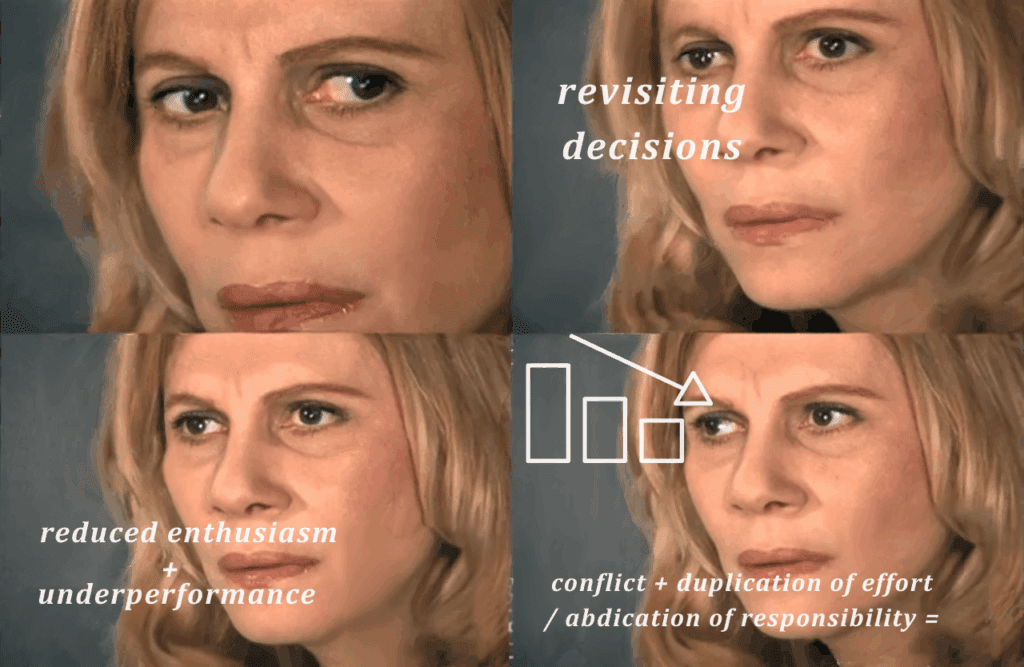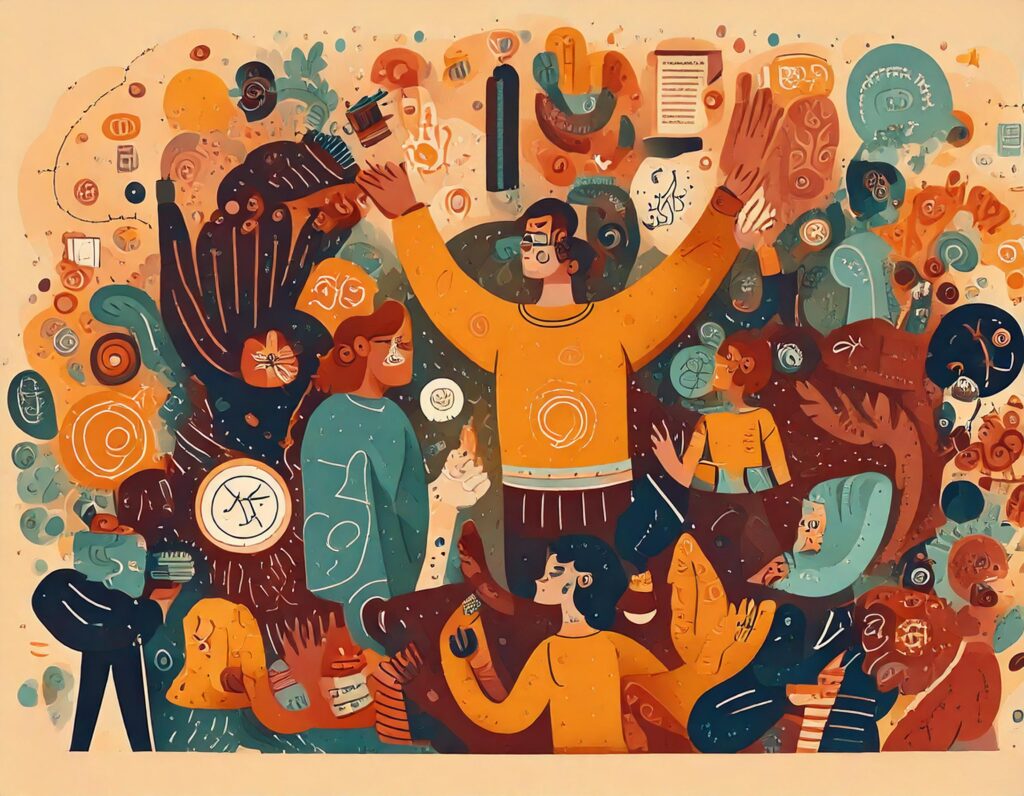FOMO: Discern First

AI is a tricky context for many organizations, for many reasons. It’s a context ripe for DISCERNMENT.
Learning to Love Confusion

You know I talk a lot about clarity – strategic clarity – and how it’s essential to the impact your organization can have, as well as the health of your organizational culture. So why would I recommend a crush on confusion?
Because confusion is actually the first step to clarity. Or rather, it can be: if you can recognize that there’s confusion present in a group. Because sometimes we don’t even realize that we’re confused. We see what’s happening – no confusion! The trouble is we don’t see why it’s happening. Maybe there’s conflict, and we see it as a communication styles issue to work out and that’s that. Or maybe there’s great collaboration happening but we never quite make our targets, so we blame the market or we change the targets and that’s that. Meanwhile, maybe the conflict is fuelled by confusion around reporting relationships, but we don’t notice that, so we apply the communication fix only to discover further disagreement brewing just a couple weeks later. Maybe the underperformance is rooted in ambiguous language around goals and targets, with many different understandings of ideas like “excellence” or “priority”. So there’s actually no problem in the market, no need to modify targets, but oops too late that’s what we did because we didn’t check for confusion.
Even if you have recognized confusion, you might not feel crushy about it! OK you don’t actually need to crush, but you do want to celebrate your identification that confusion is present. Before you cultivate this kind of relationship to confusion, you might think of it as a state you can’t risk operating in for long, so you move quickly to sweep it away, to clear that fog. You might introduce a protocol, a new role or reporting relationship, a new meeting. You don’t take the time, or allow the spaciousness, for more careful consideration. But the thing is, confusion is … well … confusing! The likelihood that the quickest fix is also the true fix – that it’s accurately diagnosed the deeper truths in the situation – it’s not great likelihood, a lot of the time. Another meeting won’t help if you haven’t figured out that there’s a power dynamic keeping important input from being shared. A new role or reporting relationship can’t help a team whose problem is actually not fully understanding the specific contribution a project is making to a key strategic objective.
So let’s talk about how to recognize confusion in a group, and how to embrace it.
What Really Happened? Reframing Workplace Letdowns

Think of a time you felt let down by a co-worker or partner. It could be a relationship with hierarchical reporting, or a relationship without hierarchy.
What happened? Is your answer along the lines of “I needed something from this person and they didn’t provide it, or at least not sufficiently”?
But what really happened? To explore this, think of a time you learned that a co-worker or partner felt let down by you. Presumably they felt like you did when you were let down – they needed something from you and you didn’t provide it, or at least not sufficiently. But in this case, you know a lot more about what really happened.
Maybe you didn’t know they needed it.
Maybe you didn’t know the form or timing or quality in which they needed it.
Maybe you thought you knew, but you ended up being wrong.
Maybe under time constraint, and without ability to consult with this co-worker, you had to choose between competing priorities and you chose away from this one.
There is a very straightforward way of reducing these moments in your life, and I’m going to lay it out for you now.
Clarity is Hard to Timebox

Many times, we are pursuing certainty, when what we would benefit more from is a pursuit of clarity.
Clarity is one of the four paths Brook and I choose to focus on, as helpful to making work feel better. Gaining clarity on how and why you are making particular choices – around initiatives or hires or paces or indicators – helps to improve your choices over time. It builds cogency and synergy into your plans. It helps your learning.
The Power of Not Knowing

I’m learning to crab walk. I decided to try something new to combat my reduced physical activity that began with working from home a few years ago. I chose an exercise program that includes a lot of familiar activity, and a little bit of unfamiliar activity. Most of the unfamiliar activity came naturally to me, but the crab walk seemed to break my brain at first. I found myself connecting this to some of my worries of late. As the geopolitical contexts of our lives are changing drastically and rapidly right now, I’ve been worrying that the approaches we’ve been taking toward our relationships and communities and visions of shared healthy peace will not be enough.
Don’t Underthink It.

Knowing what we hope for in any given situation – or undertaking, or conversation, or relationship – plays a big role in whether that hope will be realized. And yet there is a common way of thinking about this which assumes it only applies to momentous, major stuff – there’s no need to be mindfully intentional about the run of the mill, moment to moment minutia of life. Even those with mindfulness or meditation practices may relegate the practice to non-working time.
In workplaces, this might look like carefully crafted values statements, formal retrospectives on projects, and shared agreements for meetings, but… no intentional practices around informal, in-the-moment ideation or feedback.
The Urgency Audit.

The organization may stop encouraging or rewarding needless urgency, but if it hasn’t mapped out and implemented the corresponding structural or process supports (resource allocation, incentives and performance metrics, accessibility supports, roles, workflows, policy) to enable this shift, it will either become less effective or it will continue operating in perpetual urgency.
